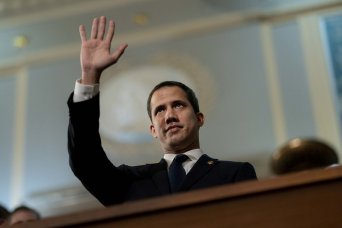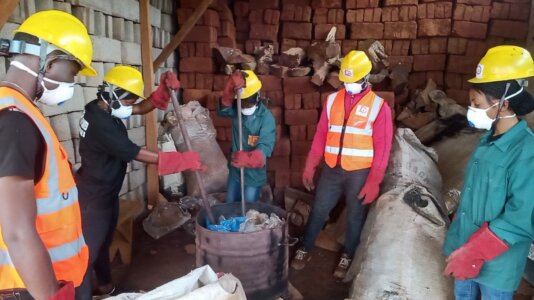- About
- Topics
- Picks
- Audio
- Story
- In-Depth
- Opinion
- News
- Donate
-
Signup for our newsletterOur Editors' Best Picks.Send
Read, Debate: Engage.
| topic: | Election |
|---|---|
| located: | Venezuela |
| editor: | Ellen Nemitz |
In January 2019, Juan Guaidó, who was then the leader of the National Assembly in Venezuela, self-declared himself president after Nicolás Maduro inaugurated a second six-year term in a contested election. Guaidó's position had been officially acknowledged by over 50 countries worldwide and, since then, he has been carrying out an interim, but long-lasting, parallel administration acting on some national affairs such as foreign assets and embassies. Nearly four years later and two years ahead of the next presidential elections, Guaidó's mandate as interim president is about to be suppressed.
On 22 December, the National Assembly gathered 72 votes in favour of a reform of the Estatuto que Rige la Transición Hacia la Democracia (Statute Governing the Transition Toward Democracy), putting an end to the non-official administration as of 4 January, 2023. There will be another session, convened for 29 December, to put the matter under discussion again and ratify the decision or not.
The proposal, now approved by a majority of deputies - only 23 opposed it and nine remained neutral - was formally presented by the deputy Nora Bracho, who endorsed Guaidó "for his bravery in assuming a position that led him to be persecuted." She added, though, that despite great efforts, what Guaidó did was not enough. "Politics is not static and intelligence tells us that it should be corrected when it must be," Bracho affirmed.
The local outlet Efecto Cocuyo has been covering this milestone and analysed what it means for the country. According to them, the crisis in the Legislative power in Venezuela began in 2020, with the extension of the deputies' term beyond five years despite Constitutional rules; one year later, this group of politicians had flagged that the interim government should disappear. Furthermore, the legitimacy of Guaidó's functions has been questioned since January 2021, when the National Assembly's legal term came to an end.
Guaidó, in his turn, tried to postpone the interim government for one more year, supposedly based on the Constitution. "It is not about defending a person, but about the tools we have to protect Venezuelans," he claimed on Twitter. A video also shared on social media shows him defending that people in Venezuela have the right to keep seeking a democratic government and that "the void that the dictatorship created in 2018" should not be filled with another one, besides maintaining that he will never surrender.
The consequences of this new chapter in Venezuelan politics are still unclear, but it certainly does not help the nation get out of the political and humanitarian crisis in which it has been thrown for the past years. What we know for sure is that Venezuela's main challenges regarding the economic conditions of the population and the country’s human rights violations must be addressed with the maximum urgency: people need basic conditions of life much before new elections in 2024. For this to be achieved, political opponents must find a path to restore the country's stability as soon as possible.
Image by White House Archive

